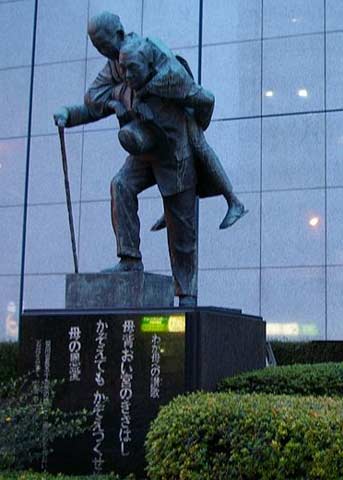The other day I was listening to the audio book of Children of Men and I heard a word I’d known of for a long time but had never encountered in my native language. The word was “filial piety,” meaning the love and restpect you should show to your mother and father, and the only reason I know the word at all is because its Japanese version, oya koko (oh-ya koh-koh), comes up quite often in daily life here. While most of the James Clavell-derived images of Japanese people are completely false — I have yet to meet anyone who was ready to commit ritual disembowelment to defend the honor of their ancestors — one area where the classic image of nihonjin is dead on is their custom of showing special respect for their parents, both while they’re alive and after they’ve gone on. This phenomenon is complex and takes many forms, from a son who studies extra hard so he can get into one of the cheaper national universities to save his parents money to children who alter their own lives because of the needs of their parents. For example, my mother-in-law spent some years in Tokyo in her younger days, and there was a special someone she wanted to marry, but when her parents called her back to Gunma to take over the family liquor store, she had to leave Tokyo forever. My wife, too, would have been more than happy to live in the U.S., but since she’s an only child and needed to take over the family home she returned, which was good for me since I was waiting for her. So go give your mom and dad a call and show them some filial piety!

The ultimate expression of filial piety, carrying your aged mother up the stairs to bed.















